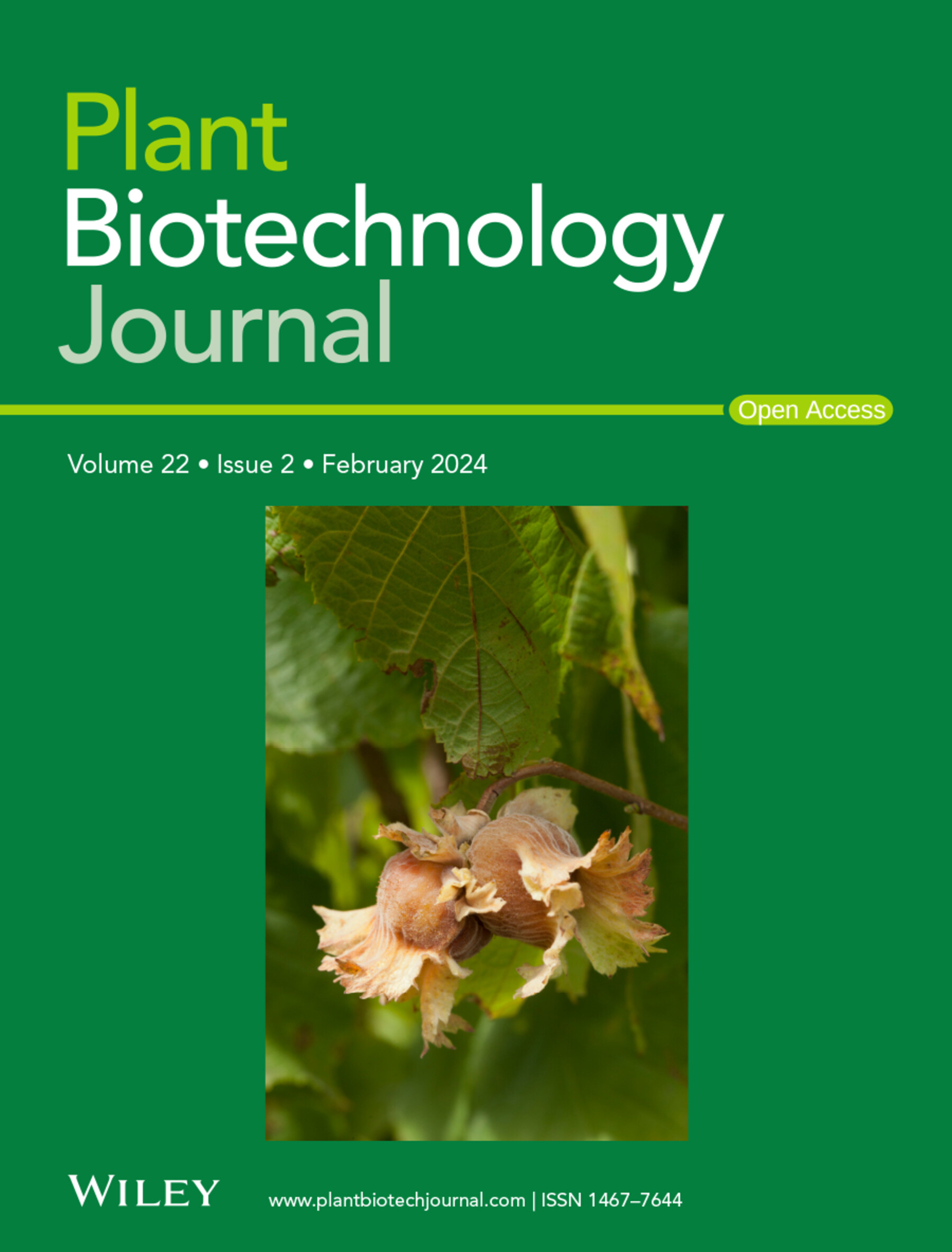An ABF5b‐HsfA2h/HsfC2a‐NCED2b/POD4/HSP26 module integrates multiple signaling pathway to modulate heat stress tolerance in wheat
IF 10.5
1区 生物学
Q1 BIOTECHNOLOGY & APPLIED MICROBIOLOGY
引用次数: 0
Abstract
SummaryHeat stress caused by increasing global temperature has become a major factor limiting yield in wheat. Heat shock transcription factors (Hsfs), as the primary regulators in plant responses to heat stress, play essential roles in modulating both basal and acquired thermotolerance in plants. However, the underlying molecular mechanisms remain to be elucidated. By analysing the wheat transcriptome after subjecting wheat to heat treatments for different time intervals, we identified geneABF5b‐HsfA2h/HsfC2a‐NCED2b/POD4/HSP26模块整合多种信号通路调控小麦耐热性
全球气温升高引起的热胁迫已成为限制小麦产量的主要因素。热休克转录因子(Hsfs)是植物对热胁迫反应的主要调控因子,在植物的基础耐热性和获得性耐热性调控中发挥重要作用。然而,潜在的分子机制仍有待阐明。通过分析小麦不同时间间隔热处理后的转录组,我们发现TaHsfA2h基因对热胁迫表现出显著的正调控反应。TaHsfA2h的过表达增强了TaHsfA2h的耐热性,并受到其RNA干扰的抑制。RNA‐seq分析表明,TaHsfA2h的过表达显著提高了ABA和ROS信号通路相关基因的表达水平。此外,我们确定了ABA信号通路中的一个关键调节因子TaABF5b,能够调节TaHsfA2h的表达。值得注意的是,TaHsfA2h在体内和体外都与TaHsfC2a相互作用。同样,TaHsfC2a过表达显著增强热胁迫耐受性,而敲除显著降低耐受性。TaHsfC2a的存在显著增强了TaHsfA2h的调控活性。TaHsfA2h和TaHsfC2a可以共同调控热胁迫耐受相关基因TaNCED2B、TaPOD4和TaHSP26的表达水平,从而增强小麦对热胁迫的耐受能力。总之,我们的研究结果揭示了ABF5b‐HsfA2h/HsfC2a‐NCED2b/POD4/HSP26模块对小麦耐热性的正向调节作用。这一发现进一步扩展了植物热胁迫响应模型的功能,为开发耐热小麦品种提供了理论基础。
本文章由计算机程序翻译,如有差异,请以英文原文为准。
求助全文
约1分钟内获得全文
求助全文
来源期刊

Plant Biotechnology Journal
生物-生物工程与应用微生物
CiteScore
20.50
自引率
2.90%
发文量
201
审稿时长
1 months
期刊介绍:
Plant Biotechnology Journal aspires to publish original research and insightful reviews of high impact, authored by prominent researchers in applied plant science. The journal places a special emphasis on molecular plant sciences and their practical applications through plant biotechnology. Our goal is to establish a platform for showcasing significant advances in the field, encompassing curiosity-driven studies with potential applications, strategic research in plant biotechnology, scientific analysis of crucial issues for the beneficial utilization of plant sciences, and assessments of the performance of plant biotechnology products in practical applications.
 求助内容:
求助内容: 应助结果提醒方式:
应助结果提醒方式:


